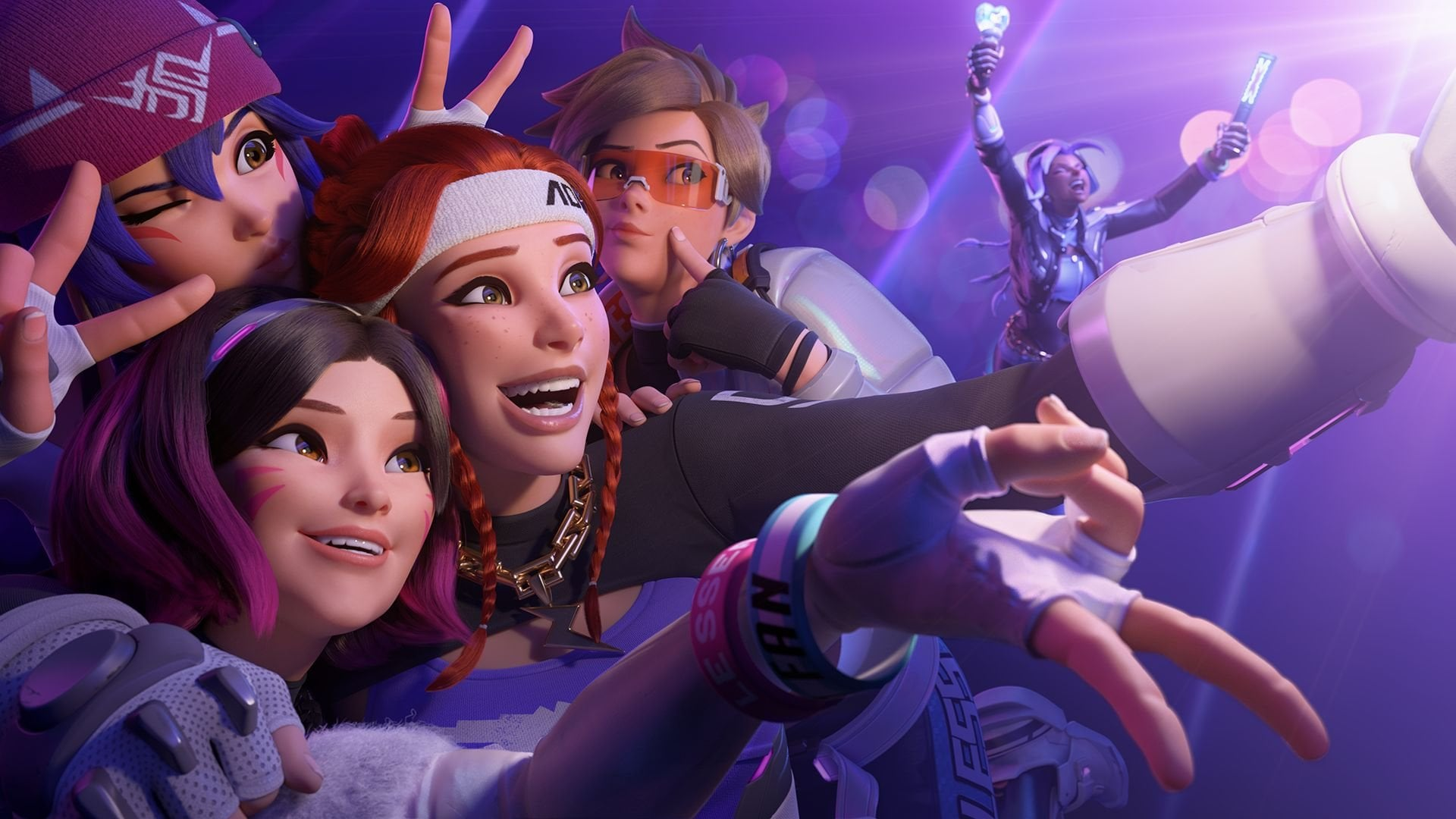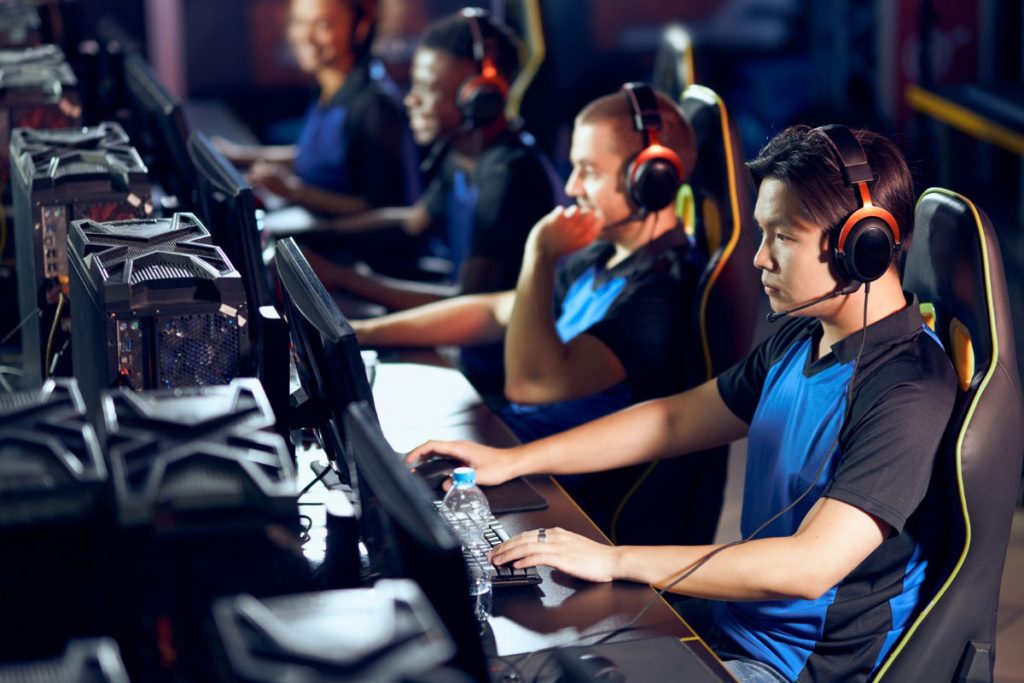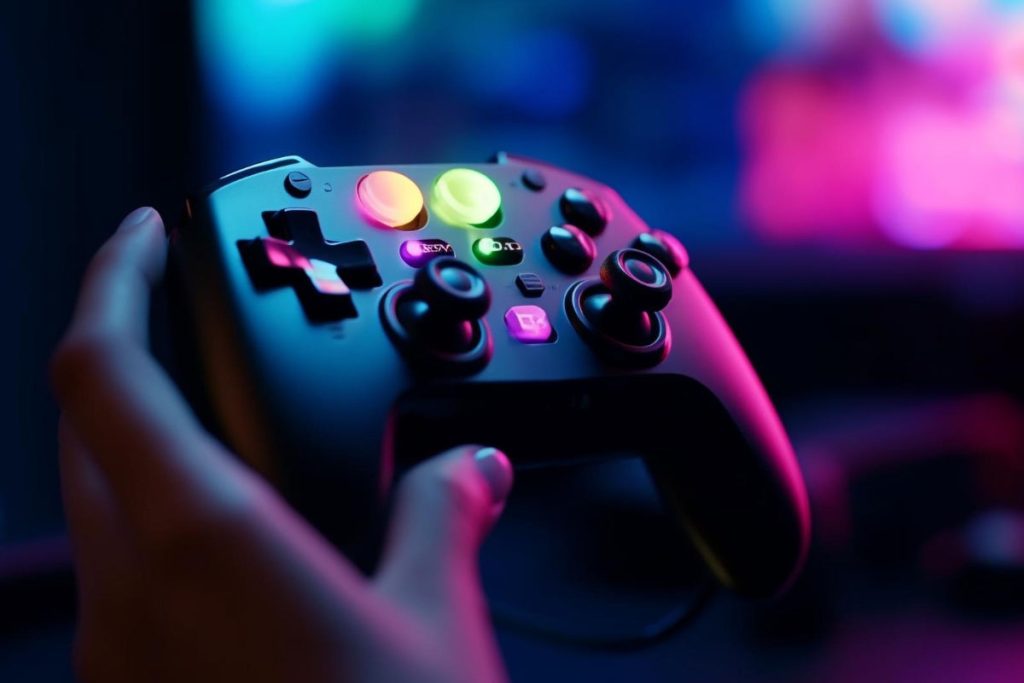The recent unionization of Overwatch 2 developers marks a significant milestone in the push for labor rights within the video game industry. Organized under the banner of the Overwatch Gamemakers Guild, nearly 200 professionals—including artists, writers, and quality assurance testers—have united their voices in a collective effort to ensure better working conditions. This move follows the successful formation of the Activision Blizzard union by the World of Warcraft team just last year, highlighting a growing trend among video game workers advocating for their rights through organized labor. The Communications Workers of America (CWA) is backing this initiative, which represents the interests of developers at Microsoft-owned studios, reinforcing the trend of unionization sweeping across the game development landscape. As video game workers unite, they seek to address serious concerns about pay equity, job security, and workplace conditions, showcasing a commitment to transforming the industry for the better.
In a bold step towards enhancing labor rights within the gaming sector, the team behind Blizzard’s Overwatch 2 has taken a stand by forming a collective union. Known as the Overwatch Gamemakers Guild, this group comprises nearly 200 dedicated individuals from various roles such as testing, art, and writing, uniting under a common cause to advocate for improved working conditions. This latest development follows the earlier successful unionization efforts seen with Activision Blizzard’s World of Warcraft team, highlighting a significant shift in the culture of game development. Mobilized by the Communications Workers of America (CWA), these video game creators are striving for essential protections against layoffs and work-related pressures, a clear indication of the industry’s evolving labor landscape. As the importance of game development labor rights gains recognition, the Overwatch 2 unionization stands as a pivotal example of workers seeking empowerment and security in a competitive environment.
The Rise of the Overwatch Gamemakers Guild
The formation of the Overwatch Gamemakers Guild marks a significant moment in the ongoing movement for labor rights within the video game industry. This wall-to-wall union unites around 200 developers from various fields, including artists, QA testers, writers, and engineers, all dedicated to improving their work environment. As the second union established at Activision Blizzard, following the World of Warcraft team, it underscores a growing trend among employees to seek collective bargaining power to address concerns about their working conditions.
This guild’s establishment reflects broader shifts in the gaming landscape, where unionization offers a pathway for developers to advocate for fair wages, job security, and better working conditions. The unionization effort, supported by the Communications Workers of America (CWA), brings together diverse voices that can now negotiate with management on crucial issues affecting their professional lives. It signifies a crucial step toward empowering video game workers and ensuring their rights are prioritized in an industry that has traditionally undervalued labor.
Activision Blizzard’s Unionization Movement
The unionization of the Overwatch 2 team is part of a larger movement within Activision Blizzard, where employees are coming together to push for their rights as game developers. This recent development coincides with the formation of the Overwatch Gamemakers Guild and adds to the ranks of nearly 2,000 game developers who are now part of a union framework at Microsoft-owned studios. The successful organization of the guild reflects a collective desire among Activision Blizzard employees to create a healthier work environment.
Furthermore, the CWA’s involvement in these efforts highlights the urgency for standardizing labor protections across the industry. Workers are increasingly vocal about issues such as layoffs, pay disparities, and work-life balance, which have been exacerbated by recent company restructuring and layoffs. The formation of the Overwatch Gamemakers Guild signals a turning point for Activision Blizzard as it transitions into a more employee-centered company ethos.
Labor Rights in Game Development: The Impact of Unionization
Unionization within the game development sector is gaining momentum, with the Overwatch 2 team setting an exemplary benchmark for other studios to follow. The guild’s emphasis on labor rights aims to tackle pressing issues like job security, equitable pay, and workplace conditions. As unions emerge within notable franchises, there is hope that the game development community can drive systemic change, making it a top priority to ensure fair treatment of all employees.
Moreover, the push for labor rights is being championed by organizations like the Communications Workers of America (CWA), advocating for changes that protect video game workers. The significance of collective bargaining cannot be overstated, as it empowers developers to negotiate effectively for their interests, setting precedents that could ripple across the industry. With unions advocating for freelance benefits and better severance packages, the future for game developers looks increasingly secure.
Addressing Workplace Challenges: Layoffs and Pay Disparities
The decision of the Overwatch 2 team to unionize stemmed from palpable tensions surrounding layoffs and pay disparities exacerbated in early 2024. As Microsoft executed significant job cuts across its gaming division, the Overwatch Gamemakers Guild became a crucial voice for developers seeking stability and security. Employees voiced their frustration, sharing that they felt vulnerable to abrupt decisions impacting their job security, which spurred the urgent need for collective representation.
Addressing these challenges, the Overwatch Gamemakers Guild aims to negotiate terms that ensure employees feel valued and protected. The members are actively advocating for improved severance packages and fair compensation structures that reflect their contributions to game development. Workers believe that creating a secure work environment not only enhances their well-being but also leads to improved games, highlighting the intrinsic link between employee satisfaction and quality output.
Championing a Culture of Safe Working Conditions
Central to the objectives of the Overwatch Gamemakers Guild is the establishment of a work culture that prioritizes safe working conditions for all employees. Developers have long emphasized the negative implications of work-from-home restrictions, coupled with the pressures of ‘crunch’ periods, where extended hours are often expected. The need for guarantees against excessive workloads is paramount, as it directly affects both the mental health of employees and the overall quality of life.
In this context, the union seeks to negotiate provisions that protect workers from overwhelming demands and establish clear policies regarding work expectations and rights. By advocating for a dialogue with management about work-life balance, the Overwatch Gamemakers Guild is pushing toward a future where game developers are respected not just as creators, but as individuals entitled to a healthy work environment.
The Role of the CWA in Game Development Unionization
The Communications Workers of America (CWA) plays a pivotal role in the recent surge of unionization in the video game industry, including the establishment of the Overwatch Gamemakers Guild. The CWA supports workers by providing resources, guidance, and strategic counsel in their efforts to form unions and assert their rights. This partnership is crucial in navigating the complexities of labor laws and negotiations in a rapidly evolving industry.
By empowering workers at studios like Activision Blizzard, the CWA emphasizes the importance of unity among game developers. The unionization efforts extend beyond individual studios, aiming to create a robust network of support where game workers can collaborate and share their experiences, ultimately leading to better working conditions across the industry. The CWA’s involvement represents a critical step toward addressing the systemic issues plaguing the video game labor market.
Negotiating the First Contract: Challenges and Expectations
As the newly formed Overwatch Gamemakers Guild steps into the negotiation phase for their first contract, they enter a landscape rife with challenges. The guild’s members recognize that achieving favorable terms will require strategic planning and unified action, particularly given Microsoft’s previous accusations of prolonging negotiations with unions. This period of negotiation is crucial for setting the tone of future labor relations between game developers and management.
The expectations are high as members of the Overwatch Gamemakers Guild aim for a contract that addresses pressing issues such as job security, compensation, and adequate severance packages. Given the collective grievances around layoffs and workplace conditions, their negotiations could set a precedent that influences not just Overwatch 2 but potentially other studios within the Microsoft gaming umbrella. Success in this endeavor will not only validate the unionization efforts but also strengthen the movement for game development labor rights.
The Future of Unionization in the Gaming Industry
The recent unionization of the Overwatch 2 team signifies a potential turning point for the gaming industry, hinting at a broader trend towards organized labor. As more developers recognize the importance of collective representation, we may witness a wave of unionization across multiple studios. This shift can fundamentally alter how companies engage with their employees, prioritizing their well-being and earnings as fundamental components of company culture.
Additionally, the future of unionization in gaming can lead to improved dialogues about compensation and working conditions. As industry scrutiny grows regarding labor practices, unions like the Overwatch Gamemakers Guild and the CWA will likely play critical roles in shaping policies that address disparities and advocate for workers. With collective action, the gaming community could pave the way for substantive changes that enhance both individual and collective experiences in game development.
Rallying Community Support for Game Workers
The unionization of the Overwatch 2 team has garnered significant attention, not just within the gaming community but also from industry observers and advocates for workers’ rights. There is a growing understanding that community support can be integral in reinforcing the importance of labor movements within tech and gaming sectors. By rallying public interest and backing for unions, game developers can amplify their voices and strengthen negotiation positions.
The success of the Overwatch Gamemakers Guild could serve as an inspirational model for other game developers looking to unionize, demonstrating that solidarity and collective action can lead to meaningful change. The support from fans, industry leaders, and fellow developers highlights the interconnectedness of labor rights and the overall health of the gaming culture, ultimately working towards a future where creative talents feel secure, valued, and empowered to produce their best work.
Frequently Asked Questions
What is the Overwatch Gamemakers Guild and how does it relate to Overwatch 2 unionization?
The Overwatch Gamemakers Guild is the union formed by the team behind Overwatch 2, comprised of nearly 200 developers including artists, QA testers, writers, and engineers. This unionization initiative aims to improve working conditions, such as job security and fair pay, and is a significant step for video game workers seeking representation within Activision Blizzard.
How does the Communications Workers of America (CWA) support Overwatch 2 unionization?
The Communications Workers of America (CWA) is the union representing the Overwatch Gamemakers Guild, which has come together to advocate for the rights of video game workers at Activision Blizzard. The CWA’s involvement emphasizes collective bargaining and the fight for labor rights in the gaming industry, especially after the unionization of the Overwatch 2 team.
What are the major factors that led to the Overwatch 2 team’s decision to unionize?
The Overwatch 2 team decided to unionize due to various reasons, including recent layoffs, pay disparities, work-from-home restrictions, and a need for protections against excessive workloads or ‘crunch.’ These concerns highlighted the importance of job security and fair compensation within the gaming industry.
What impact does Overwatch 2 unionization have on video game workers’ rights?
The Overwatch 2 unionization is significant as it reflects a growing trend in the gaming industry where video game workers are advocating for their labor rights. With over 2,000 unionized developers at Microsoft, it paves the way for better working conditions, fair contracts, and an emphasis on the importance of employee welfare for creating quality games.
What challenges might the Overwatch Gamemakers Guild face after unionizing?
Following their unionization, the Overwatch Gamemakers Guild will face challenges such as negotiating their first contract with Microsoft, which has been accused of prolonging negotiations. Additionally, they must maintain solidarity among members to effectively advocate for improvements against possible pushback from management.
How can Overwatch 2 unionization benefit game development and the gaming community?
Overwatch 2 unionization can lead to improved work conditions for developers, which can directly enhance the quality of gaming experiences. By advocating for fair pay, job security, and manageable workloads, the guild promotes a healthier workplace, potentially resulting in better games for the community.
What is the significance of unionization for employees at Activision Blizzard, particularly for those in game development?
Unionization at Activision Blizzard, including the recent formation of the Overwatch Gamemakers Guild, signifies a collective effort by game developers to secure their rights and improve labor conditions. This movement empowers employees with a platform to negotiate better pay, job security, and workplace protections within a historically volatile industry.
Why is the Overwatch 2 unionization a landmark event for the gaming industry?
The unionization of the Overwatch 2 team is a landmark event as it showcases the increasing trend of game developers organizing for better labor rights and reflects a shift in the gaming industry’s approach to employee welfare. This momentum supports a broader movement advocating for unions as a means to address longstanding issues in game development.
| Key Points |
|---|
| Blizzard’s Overwatch 2 team has formed a union called the Overwatch Gamemakers Guild, which includes nearly 200 developers. |
| This unionization event marks the second union at Blizzard since last July after World of Warcraft’s team established their own union. |
| The Communications Workers of America (CWA) confirmed an overwhelming majority supports the union initiative. |
| The unionization means more than 2,000 game developers at Microsoft studios are now unionized. |
| The Overwatch Gamemakers Guild must now negotiate its first contract, with processes thought to be delayed by Microsoft. |
| Factors motivating the unionization include layoffs, pay disparities, work-from-home restrictions, and demand for job security. |
| Empowering conditions for better games was highlighted by Blizzard employees as a significant reason for unionizing. |
Summary
Overwatch 2 unionization is a significant development in the gaming industry, reflecting a collective effort by developers to improve their working conditions and job security. The formation of the Overwatch Gamemakers Guild not only signifies a step forward for Blizzard employees but also aligns with the growing trend of unionization within the gaming sector. By advocating for better pay, protections against layoffs, and a healthier work environment, the union aims to foster a culture where creativity and productivity can thrive, ultimately contributing to the development of better games.



